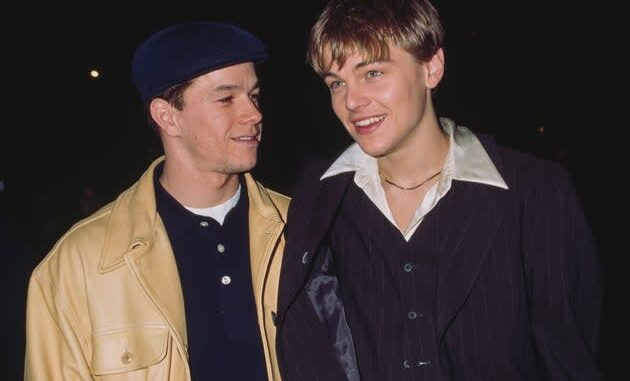
The Road Not Taken: Leonardo DiCaprio Finally Shares the Truth About His Biggest Career Regret
Leonardo DiCaprio: the name conjures images of raw intensity, environmental advocacy, and a meticulously curated filmography defined by high stakes, complex characters, and an almost religious devotion to his craft. From the youthful angst of Romeo to the debauched grandeur of Jordan Belfort, the untamed wilderness of Hugh Glass, or the haunted intensity of Cobb, DiCaprio has carved an unparalleled niche in Hollywood, synonymous with challenging roles and a relentless pursuit of artistic integrity. His career, marked by a triumphant Oscar win after years of meme-worthy anticipation, appears, from the outside, to be a masterclass in strategic ambition and unwavering vision.
So, when the notoriously private actor hinted, in a rare, deeply personal interview, that he harbored a profound career regret, the world leaned in. What could possibly haunt the man who seems to have conquered every peak? Was it a box office flop, a forgotten indie, a particularly grueling shoot? The answer, when it finally came, was disarmingly simple, yet devastatingly human: it wasn't a film he made that he regretted, but one he definitively, resolutely, turned down.
The film in question, he revealed, was a small, character-driven independent film titled "Chasing Sunsets," released in the early 2000s. At the time, DiCaprio was navigating the treacherous post-“Titanic” landscape, desperately trying to shed the heartthrob label that threatened to engulf his serious artistic ambitions. He was actively seeking roles that would solidify his position as a formidable actor, not just a teen idol. "Chasing Sunsets" was a romantic drama, light on epic scale but rich in nuanced human connection, centered around a young man’s poignant journey to reconcile with a long-lost love amidst the golden hues of an autumn New England.
“I was offered the lead role,” DiCaprio recounted, his gaze distant, perhaps replaying the mental gymnastics of that period. “It was beautiful, an exquisitely written script. Full of quiet moments, genuine emotion, a story about vulnerability and forgiveness. Everything about it resonated, in a way. But I remember thinking, ‘No. Not now. Not another love story, not one where I’m just… charming.’”
His team, he admitted, had been relieved. This was the era where he was making a definitive pivot, collaborating with Scorsese, seeking out the grit and gravitas that would eventually define his brand. A film like "Chasing Sunsets," while critically acclaimed in its own right, felt too close to the very image he was fighting to escape. It felt like a step sideways, or even backward, from the path to cinematic legend he envisioned for himself.
"I watched it when it came out," he confessed, a wistful smile playing on his lips. "It was… magical. The actor who took the role, he did a phenomenal job. And I felt a pang, not of jealousy, but of something deeper. A regret for the experience I missed. For the chance to explore a different facet of humanity, a lighter touch, a character stripped of the heavy burdens I so often seek out. It was pure, unadulterated joy on screen, and I had consciously chosen the path of perpetual intensity.”
His biggest regret, then, wasn't a tactical misstep or a bad bet. It was the deliberate denial of a different kind of artistic expression, a road not taken driven by an intense desire to define himself against a formidable tide of public expectation. As years passed, as the Oscars were won, as his status as an environmental titan grew, the luxury of hindsight allowed him a more nuanced perspective. The relentless pursuit of one kind of greatness, he realized, sometimes comes at the cost of denying other, equally valid, forms of creative fulfillment.
DiCaprio’s confession humanizes him in a profound way. It strips away the impenetrable facade of the actor who always knows best, revealing the vulnerability of a man who, like all of us, has made choices based on ambition, fear, and the perceived demands of the moment. His regret isn't about fame or fortune; it's about the missed opportunity for a particular kind of grace, a fleeting moment of artistic exploration he deliberately bypassed. It serves as a poignant reminder that even the most stellar careers are woven with threads of "what ifs," and that sometimes, the true cost of our ambition is not in failure, but in the beauty of the roads we deliberately leave untraveled.